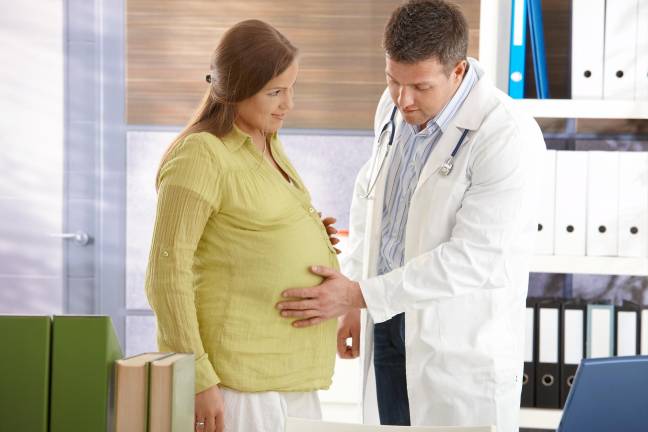Does postpartum depression screening help women?
Few studies have examined whether screening results in better access to treatment or improved mental health outcomes. But there are signs that raising awareness and removing stigma is helping many women.

In the past decade, several states, including New York and New Jersey, have passed laws that mandate screening for depression during pregnancy and the postpartum period. Pennsylvania has a bipartisan bill now making its way through the state legislature.
These laws are intended to increase awareness among doctors, women, and their families. Often, the legislation is spurred by women who reach out to politicians after experiencing postpartum depression, or in response to tragic stories of women with postpartum depression and psychosis.
"If I had had one ob-gyn or one pediatrician on a child wellness visit spend just five minutes with me and ask me how I was doing, it would have saved me from going through the worst six months of my life," says Paige Bellenbaum, a New York-based clinical social worker who suffered from postpartum depression after the birth of her first child.
After she finally found help and began to recover, Bellenbaum collaborated with a state senator to create the Maternal Depression Bill.
But very few studies have examined whether screening programs result in better access to treatment or improved mental health outcomes. This lack of evidence has led some experts to question whether screening laws actually help women – or do more harm than good by creating confusion and distress when women who screen positive don't have access to care and support.
How screening works
Screening usually involves answering a 10-question test called the Edinburgh Postnatal Depression Scale (EPDS), which indicates whether a woman is at high risk of depression. Providers usually refer women who screen positive to a mental health specialist for a definite diagnosis and treatment.
A study of community-based health centers in North Carolina found that screening identified many more women at risk of depression at their six-week postpartum visit than healthcare providers did at a routine visit (35 percent compared to 6 percent). Another study found that among women who had previously exhibited signs of depression, ob-gyns and nurses identified only 26 percent as at risk during a regular prenatal visit.
But getting healthcare providers, such as ob-gyns and pediatricians, to screen is a challenge because they often feel unqualified to give mental health care, says Ilise Zimmerman, executive director of the Partnership for Maternal & Child Health of Northern New Jersey, an organization that trains perinatal care providers to screen women and help them find care.
Even when clinicians do the screening, there is a danger that women who screen positive could feel alienated if clinicians don't explain the results in a way that women understand or feel comfortable with, says Linda Chaudron, MD, a psychiatrist at the University of Rochester School of Medicine and Dentistry. "But these risks can be minimized through provider education, and the benefits of identifying women who might otherwise go on suffering are great," she adds.
The main argument against screening laws is the lack of research showing it results in more women getting treatment. There has been only one study on the impact of legislation, involving women on Medicaid in New Jersey, two years before and one year after the New Jersey law was passed. Following the legislation, the study found no increase in the percentage of women who received a prescription for an antidepressant or had a mental health visit six months after giving birth. This suggests there was at least not an immediate improvement in care for postpartum depression.
Success stories
Despite the lack of data that support screening on a statewide level, there are success stories from individual hospitals and groups of clinics. One study looked at the effect of training primary care doctors at 14 clinics across the United States to screen and treat women within the first three months postpartum.
Women at these clinics who screened positive received further evaluation and possibly medication or counseling. They had fewer depressive symptoms 6 and 12 months later, compared with women who went to one of the control clinics in the study where doctors had not been trained to screen and treat.
And there could be other benefits to laws that either require screening or promote it.
"I haven't seen evidence that laws per se directly help, but they very effectively bring people together," says Laura Miller, medical director of women's mental health at the Edward Hines Jr. VA hospital in Illinois. Clinical and advocacy groups, experts, and funders meet to discuss legislation, which can increase awareness among doctors and may even bring in funding.
But raising public awareness of screening could help reduce stigma, says Bellenbaum. A key aspect of the New York legislation that Bellenbaum helped create requires hospitals and birthing centers to give new mothers pamphlets about postpartum depression after they deliver. And the bill encourages providers to give women the information in the presence of a family member, which could be especially important in communities where there is still a lot of stigma around mental health problems, says Bellenbaum.
"Some women are not going to open up if you screen them," she said. "As we chisel away at stigma, they will feel less threatened and more comfortable sharing."
Source: Seleni Institute: seleni.org